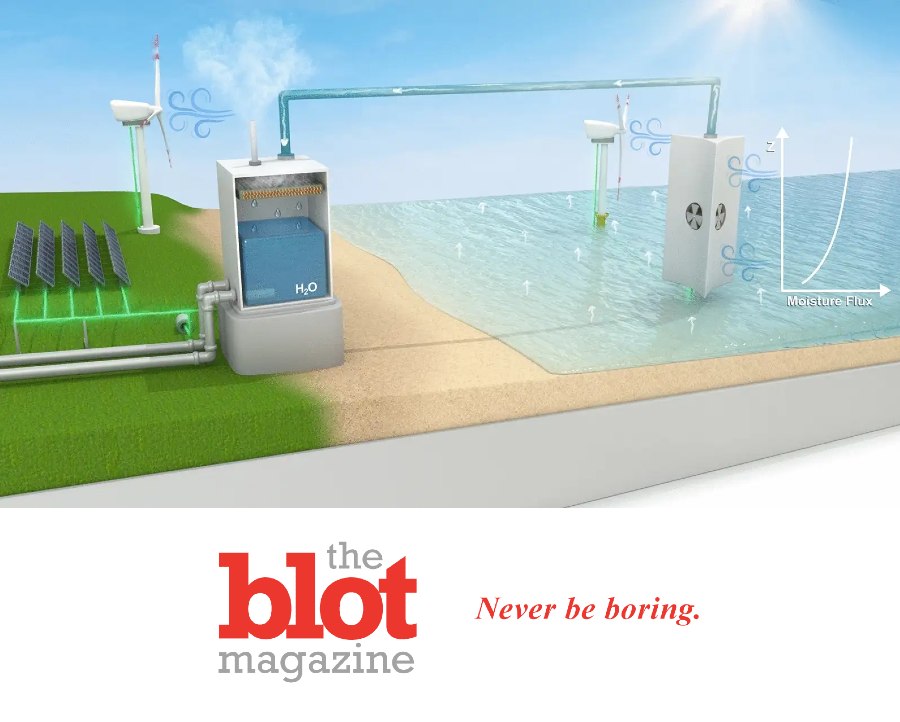
RESEARCHERS PROPOSE GIANT DEVICES THAT COULD HARVEST OCEAN WATER VAPOR INTO FRESH WATER
Fresh, drinkable water is a dwindling resource over the entire globe. There’s no single location that isn’t already affected. And there’s no single location that won’t be affected even more as each day passes. As it is, if you are in the United States, you should already be aware of how drought conditions have already changed the fresh water game in most western states. So far, that is being played out in who gets the water; Big Agro or communities with people? But before too long, there won’t be enough fresh water left to fight over. So that begs the question researchers are trying to answer everywhere: where do we get more? Now, some researchers are asking if we can maybe possibly harvest it from ocean vapor.
Read More: Alabama Garbage Collector Barely Saves Homeless Man From Compactor
DESALINATION PLANTS AREN’T EFFICIENT, COULD OCEAN WATER VAPOR HARVESTING BE THE ANSWER?
Yes, may places already try to get fresh water from the ocean by processing it thru desalination plants. But they are expensive, damage the environments, and simply don’t create enough for the trouble. But then some scientists, as I’m guessing it, thought about how global warming and its ever more powerful storms are fueled by more water vapor coming out of ocean water. Then they thought, can we harvest that? Just collect it as it happens? And scientists at the University of Illinois Urbana-Champlain are proposing a device that would literally harvest water vapor from right above the ocean’s surface.
Related:
Michigan At Last to Pay Flint Survivors $600 Million For Poisoned Water
WATER VAPOR HARVESTERS WOULD SEND CLEAN OCEAN WATER VAPOR BACK TO SHORE
The scientists identified 14 “water stressed” locations, or places very short of fresh water, where such a device could be used. Two major ones are the Atlantic Ocean off the coast of Lisbon, Portugal; the other the Pacific Ocean off the coast of Los Angeles. The proposed devices would stand about 330 feet tall and 690 feet wide and would rest several kilometers off the shore line to maximize their water vapor collection potential. As they collect, they would then send the water vapor back to shore thru a pipe, where it would condense back into fresh water.
Let’s hope this gets legs and can walk on water. As it is now, roughly 2 billion people live in water-stressed areas. And it will get worse, fast.





